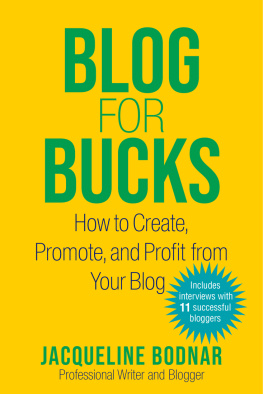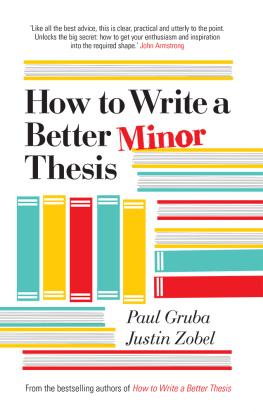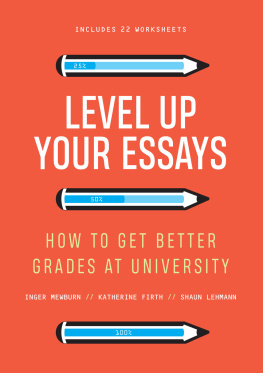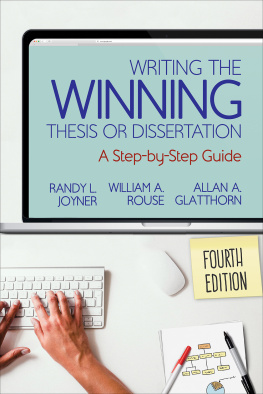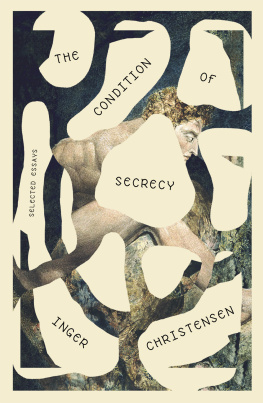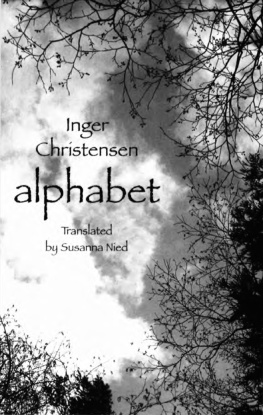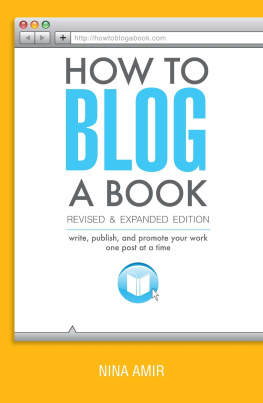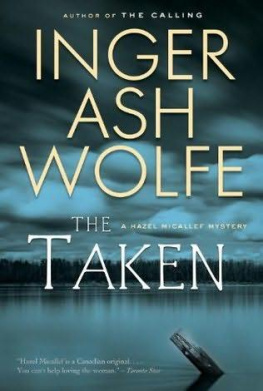Contents
Why this book?
PhD students seem to have become the 'problem children' of academia. Instead of celebrating their incredible contributions, most mainstream media articles focus on the financial and emotional stress of study and the (supposed) lack of jobs at the end of the process. I happen to think doing a PhD is worthwhile and can enrich your life in so many ways, but in my work as a professional research educator I encounter many students who have problems with finishing their PhD and coping with some of the stresses of academic life. The Thesis Whisperer blog (thesiswhisperer.com) is dedicated to addressing some of these worries and making some practical suggestions to help you finish faster and with less stress.
I finished my own PhD in 2009, but I have been working with research students since 2006. I know the suggestions in this book work as I put them into practice while I was studying. I finished in three years; one year shorter than most students in Australia. I worked two days a week for all but 7 months of this period, helped to raise a young child and did not get divorced. The finished PhD thesis (those in the US would call this a dissertation) won the faculty award for best thesis at the University of Melbourne, so I know I didnt compromise on quality.
I assure you I am not super human. I firmly believe that anyone who can get into a PhD program in the first place can graduate in a reasonable amount of time and turn out quality work. The trick is to thoroughly understand the nature of the task at hand and use a few simple productivity techniques. In addition, it is important to manage some of the emotions that the PhD experience can provoke. In these pages I will share some of my own strategies all of which have been talked about at length on the blog.
So why a book if it is all on the blog? You can read most of what is in here for free on the internet, but this ebook is a more linear way to access that content. As a blog grows it eats itself. Posts fall off the front page and tend to be forgotten; new readers find it hard to digest all the material the blog has to offer. This compilation contains more than 20 blog posts which contain essential advice for all research students, regardless of discipline.
I have only included posts which I authored myself. I am lucky to have many people write guest posts for my blog, but have promised faithfully not to publish these in a paid format, so you will have to visit the blog to access them. Many of the posts included here have been altered and edited to improve flow and readability. Extra bridging text has been written to make it more book-like, while not losing the freshness and informality of the blog.
You can read this book from start to finish, or in chunks by using the table of contents to jump straight to the topics that interest you most. If you do want to read it straight through, I have arranged the posts loosely around the timeline of the PhD: selecting a topic, understanding the thesis as a form, creative thinking, writing techniques, dealing with procrastination and negative emotions, as well as some tips on editing and presenting your final work.
Please note that the terms I use such as thesis instead of dissertation and supervisor instead of advisor because I teach students immersed in the UK / Australian style of PhD study. Practices vary in the US, Europe and elsewhere but I am confident that most, if not all, of what I have to say will be relevant to PhD students everywhere because it addresses the self directed parts of PhD study, such as the writing of the thesis or dissertation.
This book is intentionally short, around 25,000 words. You have enough reading to do as it is. At time of writing the Thesis Whisperer blog contains a further 100,000 words of advice, some of it written by other PhD students. The blog is still active so that store of knowledge is increasing week by week. The comments provided by other PhD students and academics provide interesting extensions and counterpoints. I hope this companion volume will encourage you to explore the blog further.
Why do many people have trouble finishing a PhD?
It is often assumed that PhD students only have themselves to blame for poor completion times and high drop out rates. In my view PhD students are unfairly criticized; often called 'poor communicators', abstract thinkers, slow writers or bad project managers. A lot of this is rubbish of course, but the attrition numbers don't lie. Up to one third of those who start their PhD will never finish. It is clear that PhD study is difficult and many students experience a raft of problems along the way, from failed experiments to problems with writing and poor supervision.
While many of the problems PhD students are actually problems with the system and academia more generally, the Thesis Whisperer blog wouldn't exist if PhD students didnt face some common issues. I believe it is the outstanding talents that so many PhD students possess which get them into trouble.
Its true that the things we are good at can cause the biggest problems we encounter in life. My friend Colleen worked at a fast food chain as a teenager and was always the one who tasked with mopping the floor at the end of a shift. This was the hardest, nastiest clean up job, which everyone else avoided. When she finally complained to her manager about the constant mopping he replied: "Of course you end up mopping the floor. What do you expect? You're really good at it". Theres some wisdom in only being good at the things which you enjoy doing in the workplace!
I like to think about the problems caused by our talents as our own personal Dark Side. As Yoda cautioned Luke Skywalker during the Star Wars Trilogy:
Fear is the path to the dark side. Fear leads to anger. Anger leads to hate. Hate leads to suffering.
What Yoda was saying is our natural reactions to events, like fear or anger, if not channeled appropriately, can have unintended consequences. Fallout from your talents can smack you upside your head when you aren't looking. We can even fall into large pools of molten lava if we aren't careful.
For example, good researchers are very curious people: they want to KNOW stuff. But to write a thesis you have to learn to channel your curiosity in productively narrow ways. Many students and academics (including myself) find this hard. Curiosity, once unleashed, can be relentless. A person who can't finish their literature review might have a curiosity problem, not a project management problem. They can barely finish reading a paper because they want to dive off in all the other exciting references and directions it suggests. Stopping long enough to write it down is a struggle.
Likewise a person who never finishes chapters on time might have an intelligence problem, not a writing problem. PhD students get used to using their intelligence to analyse arguments and look for flaws. The dark side of intelligence creeps in when you start to turn this analytical power onto your own arguments and ideas and find them wanting. A person with an intelligence problem may never think their work is good enough to hand in to the examiner.
Of course part of the process of becoming a scholar is learning how to analyse the strengths and weaknesses of your work. But there's a difference between trying to do good quality work and cutting your own head off with your scholarly light sabre . One of the things I like to do with my students us to give them a series of standard critical thinking questions adapted from Browne and Keeleys Asking the Right Questions: A Guide to Critical Thinking
- What is the argument about and what is being claimed?
- What are the reasons given to support the conclusion? Is the reasoning flawed in anyway?
- What kind of evidence is being presented (i.e. intuition, appeals to authority , observation, case studies, research studies, analogies, etc) and how good is it?


